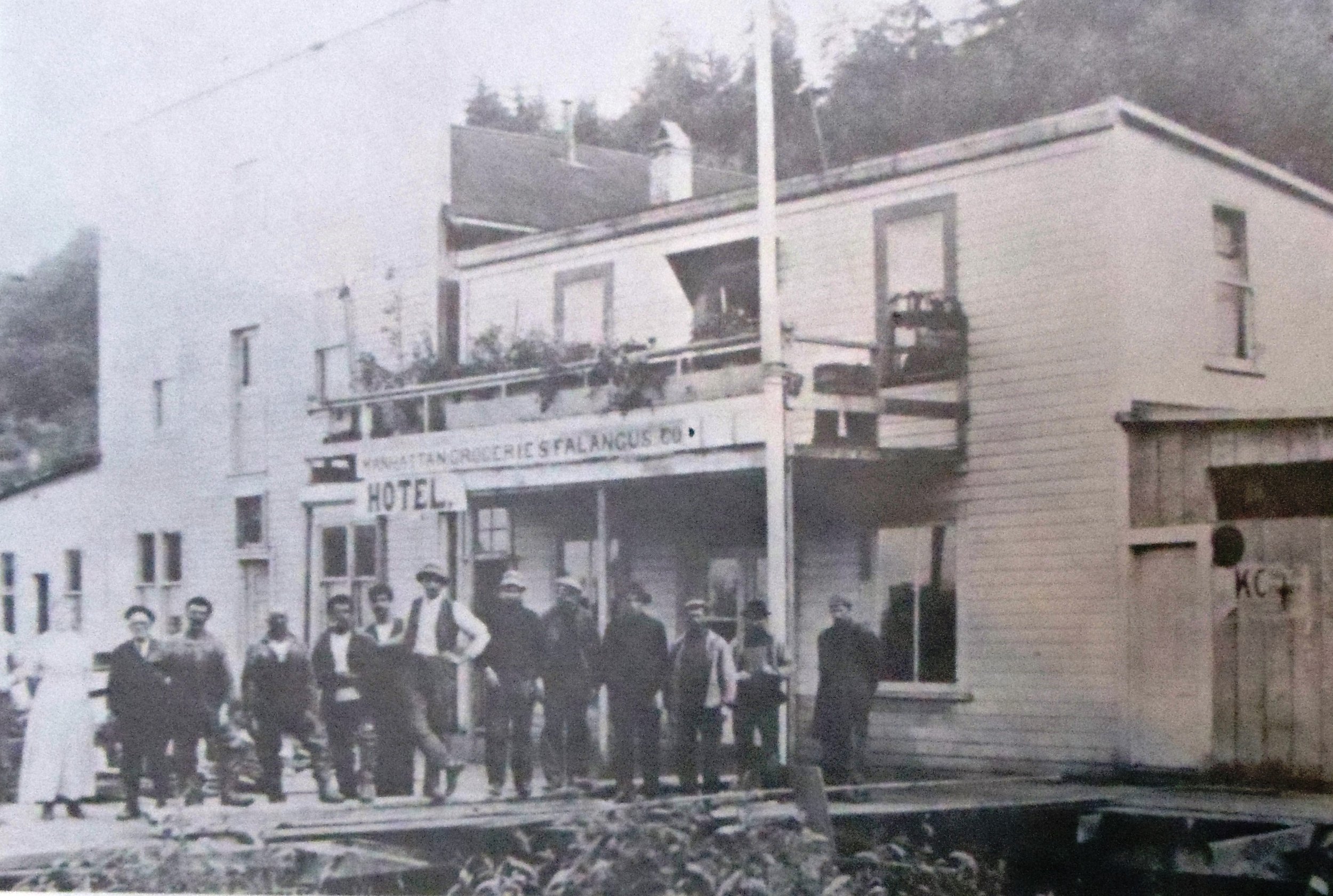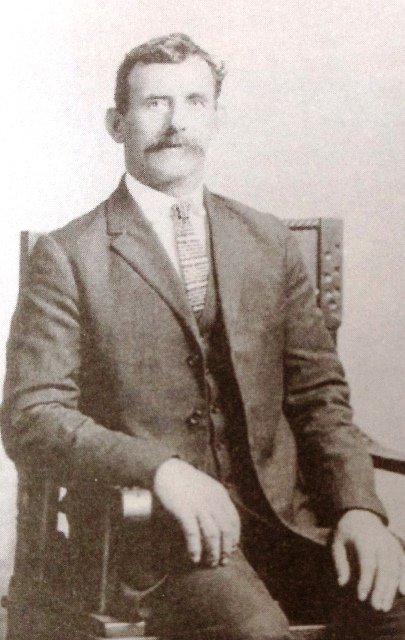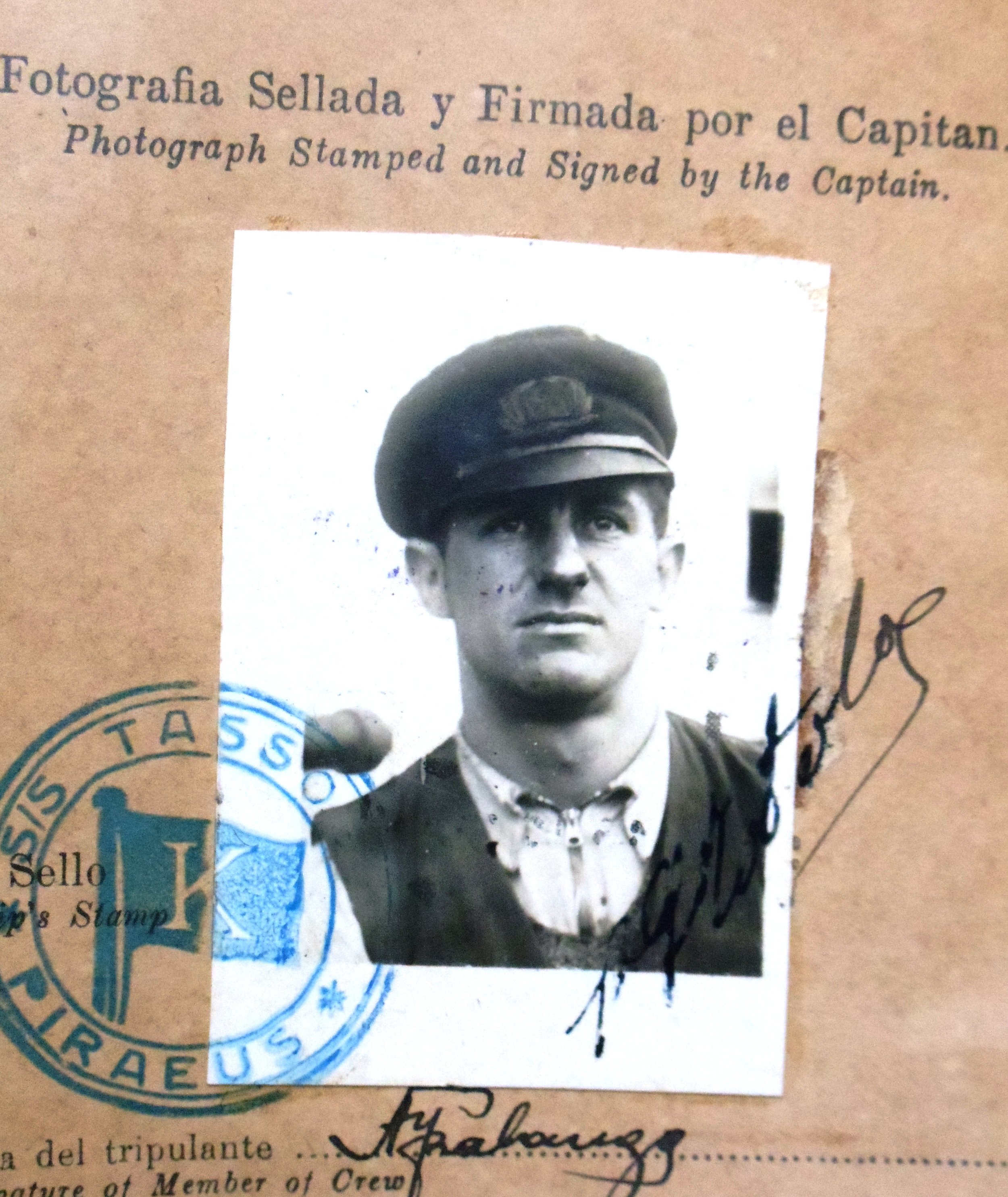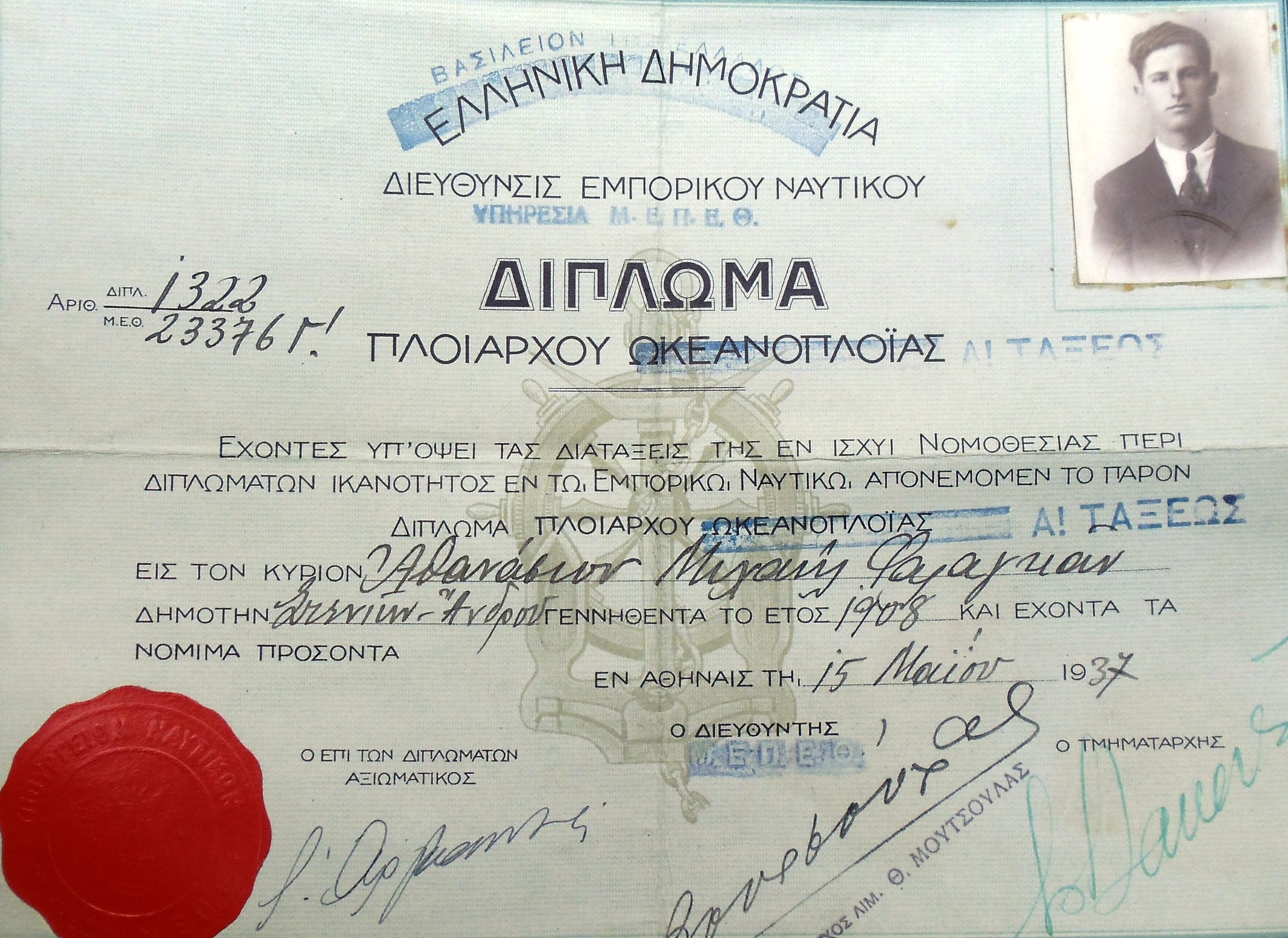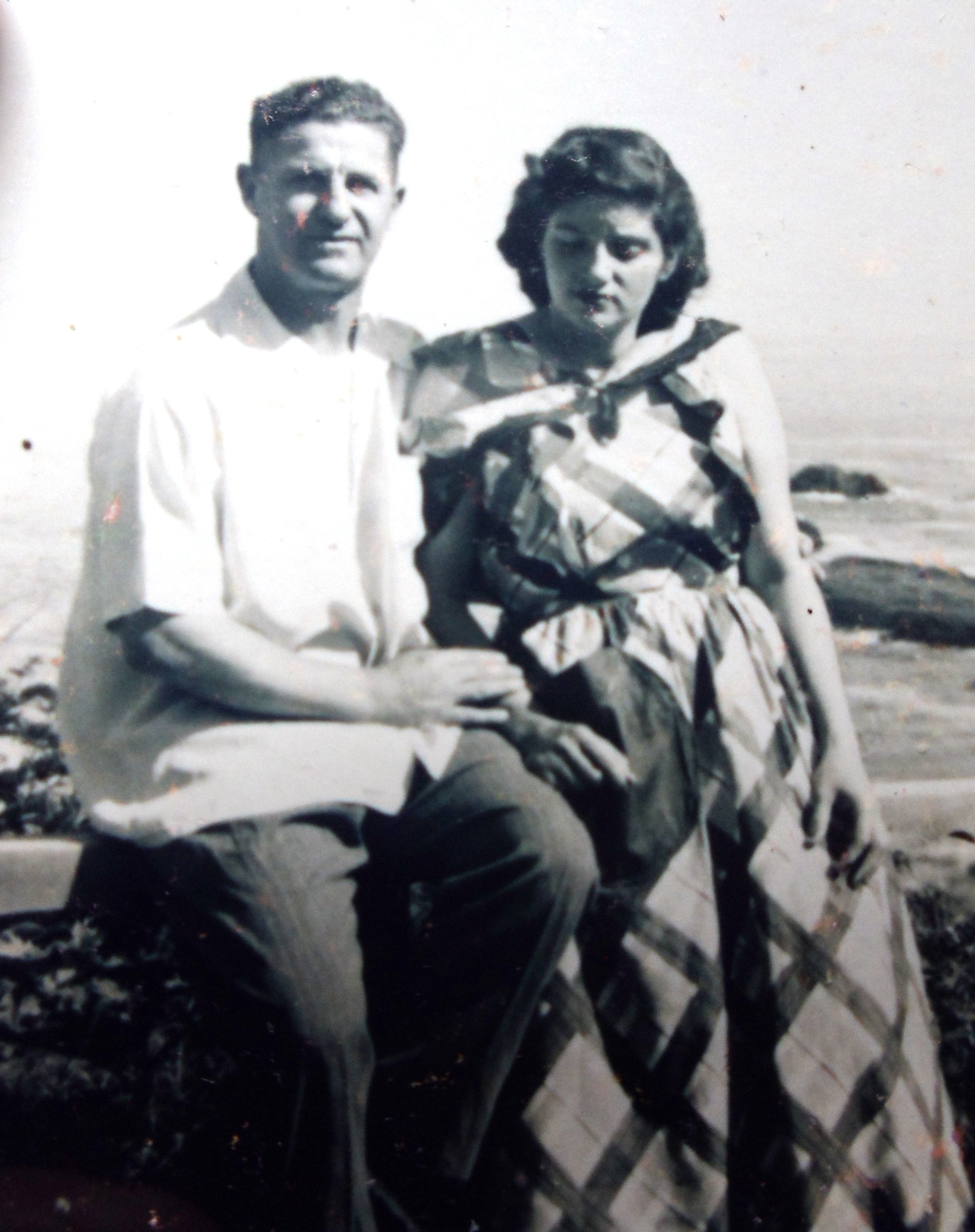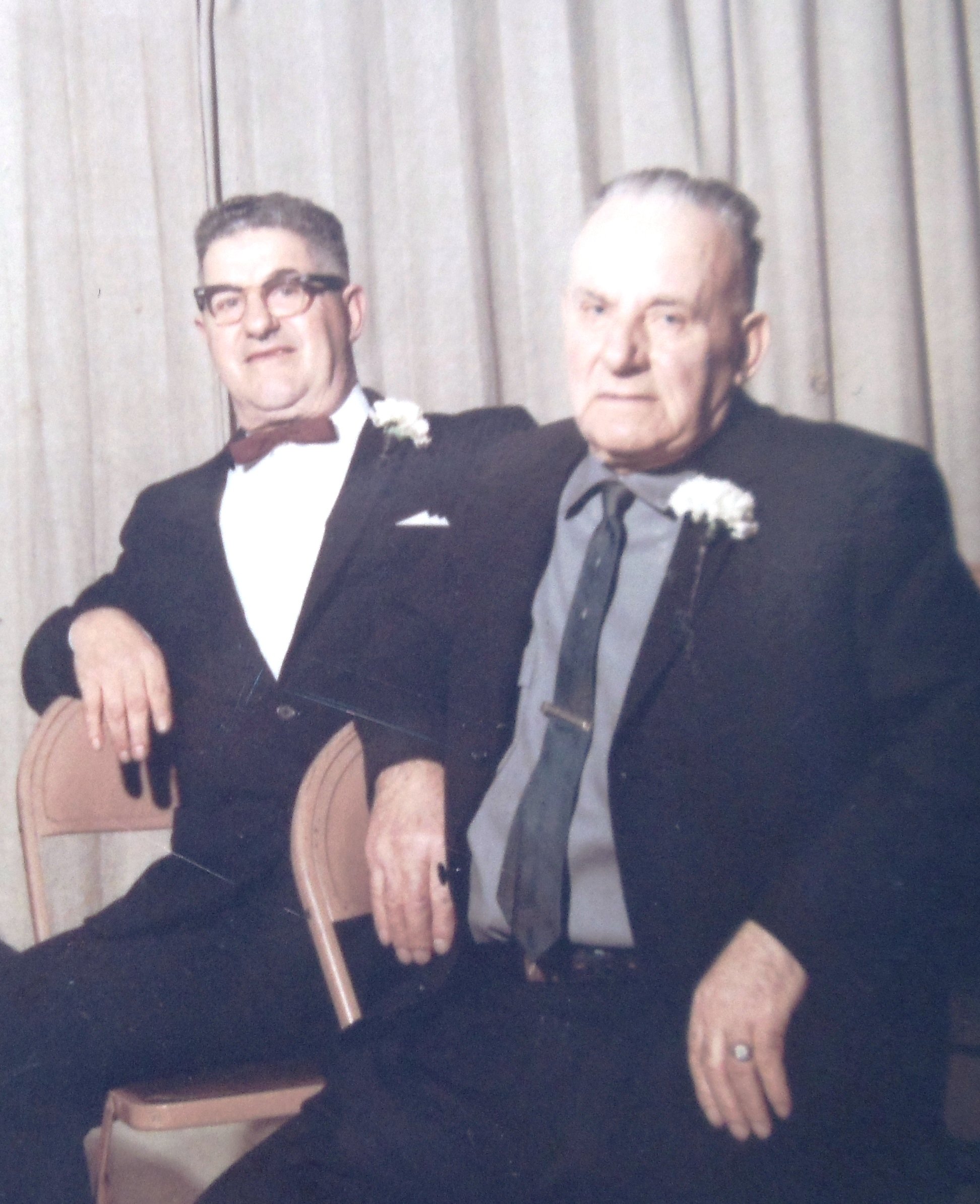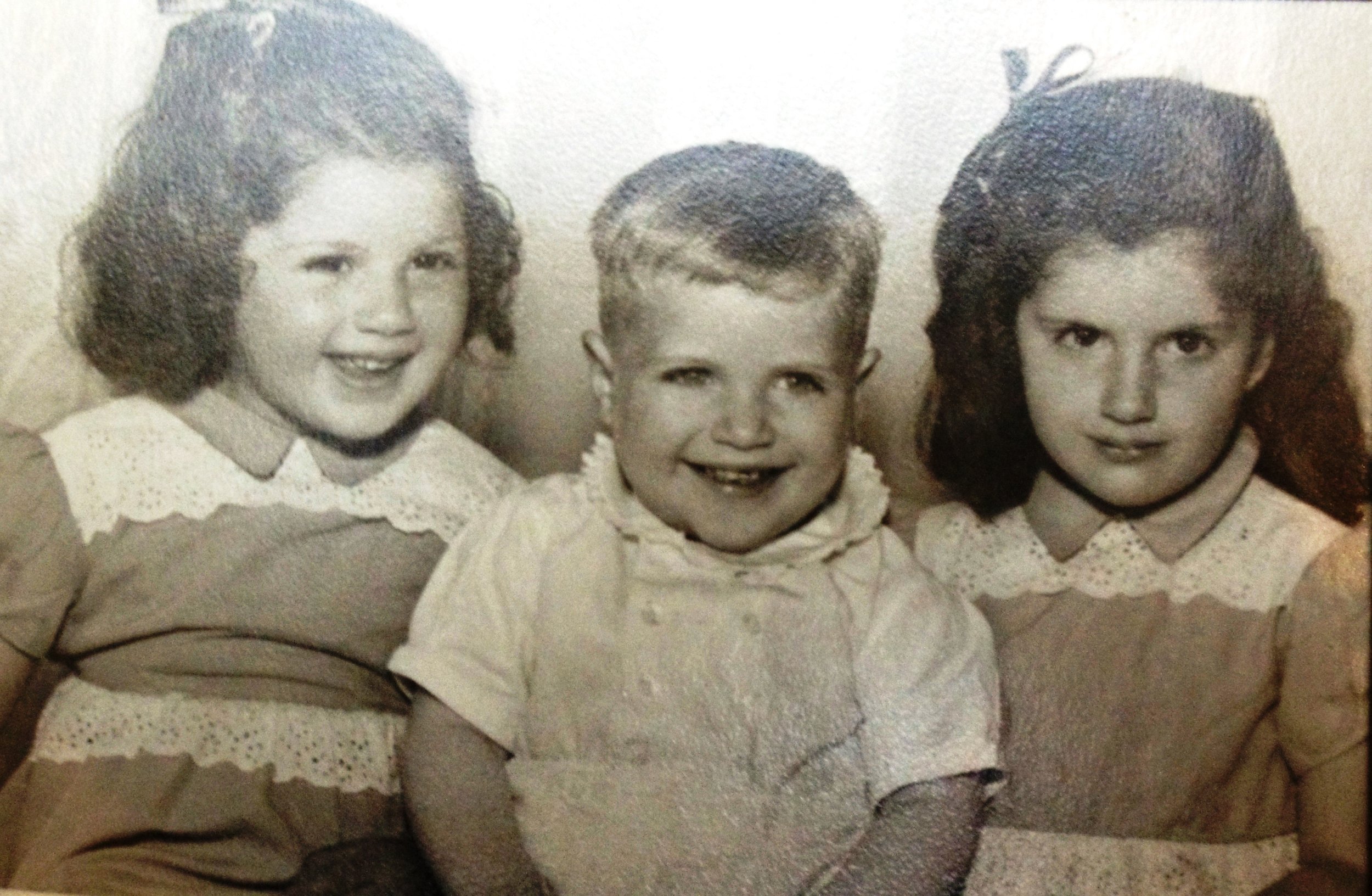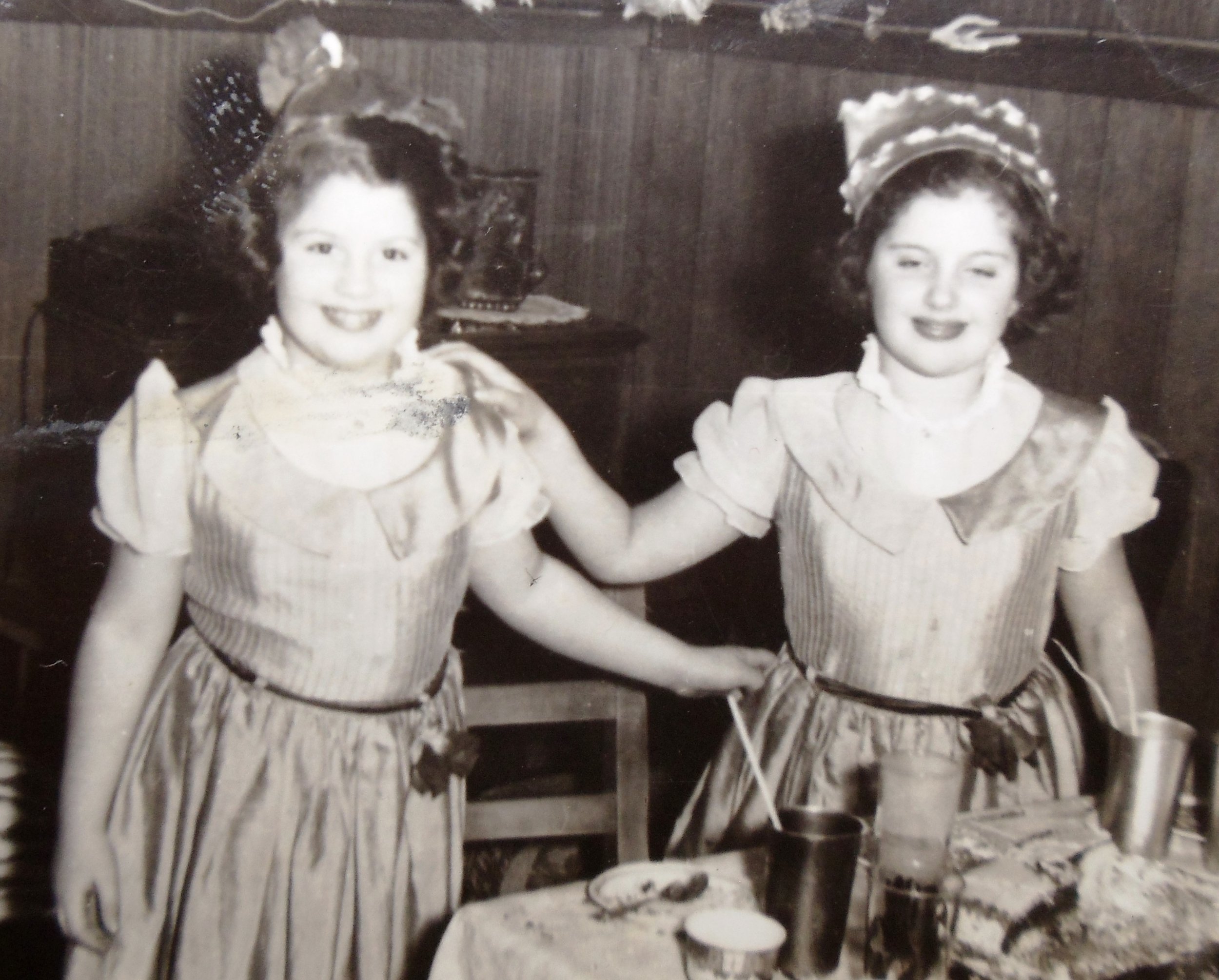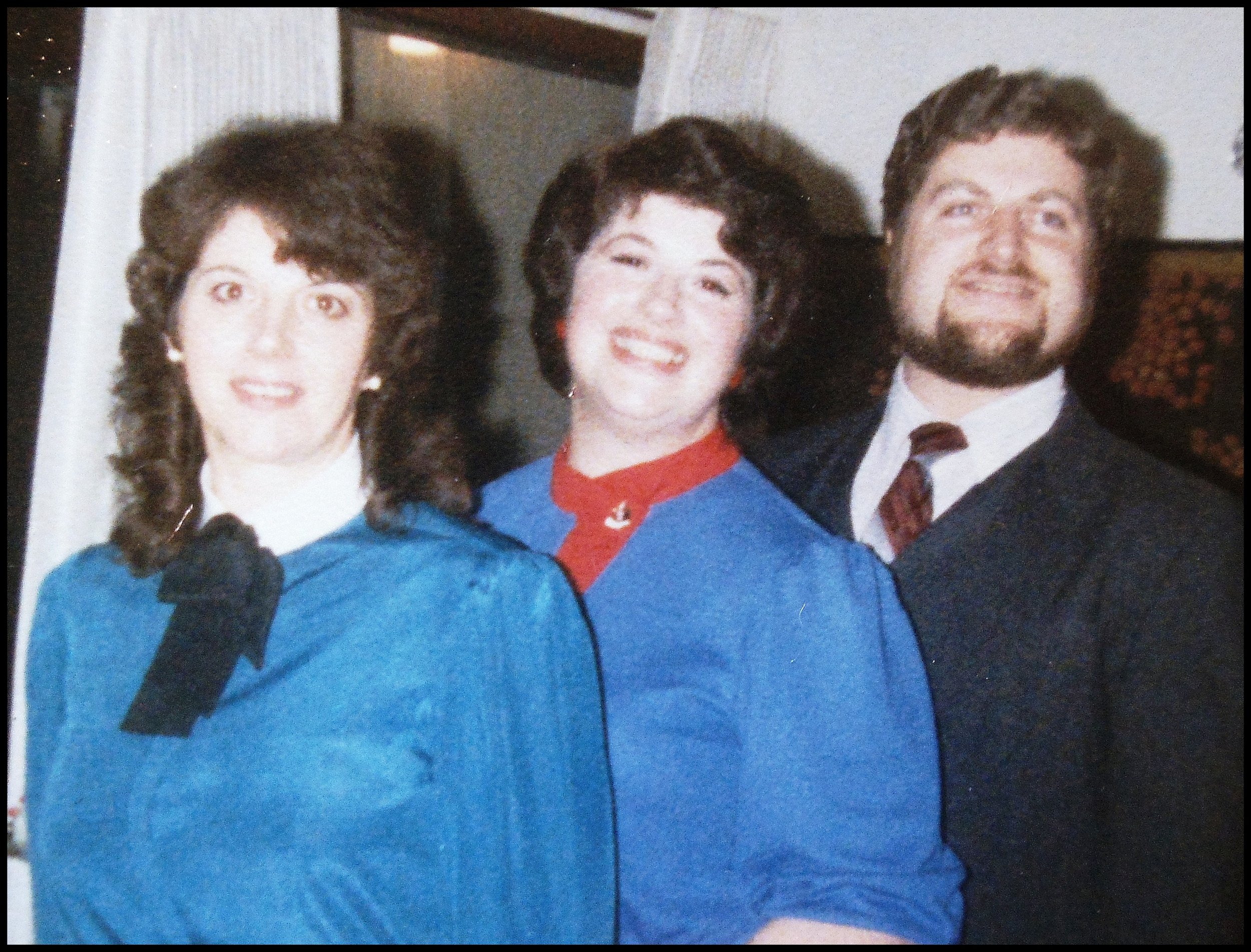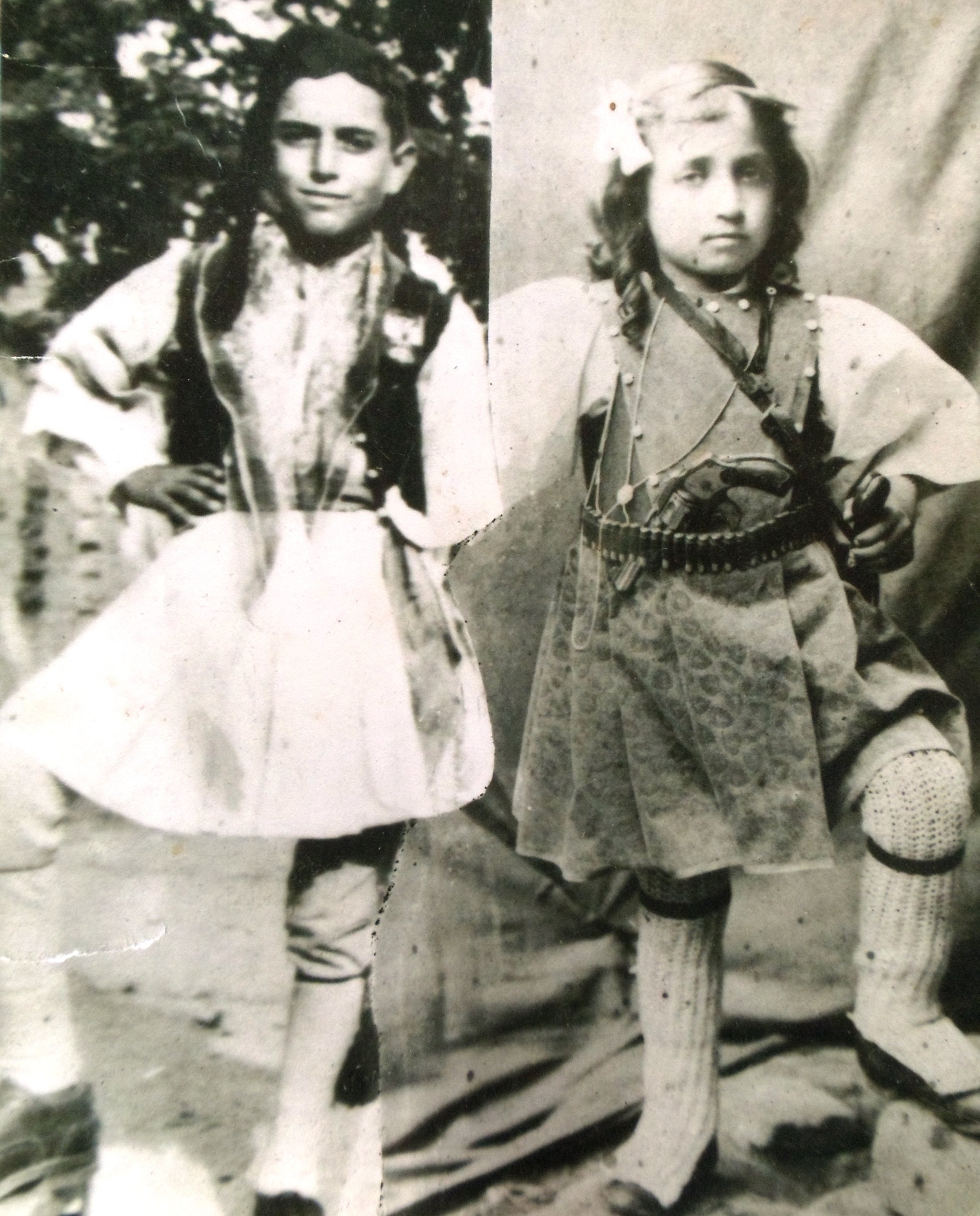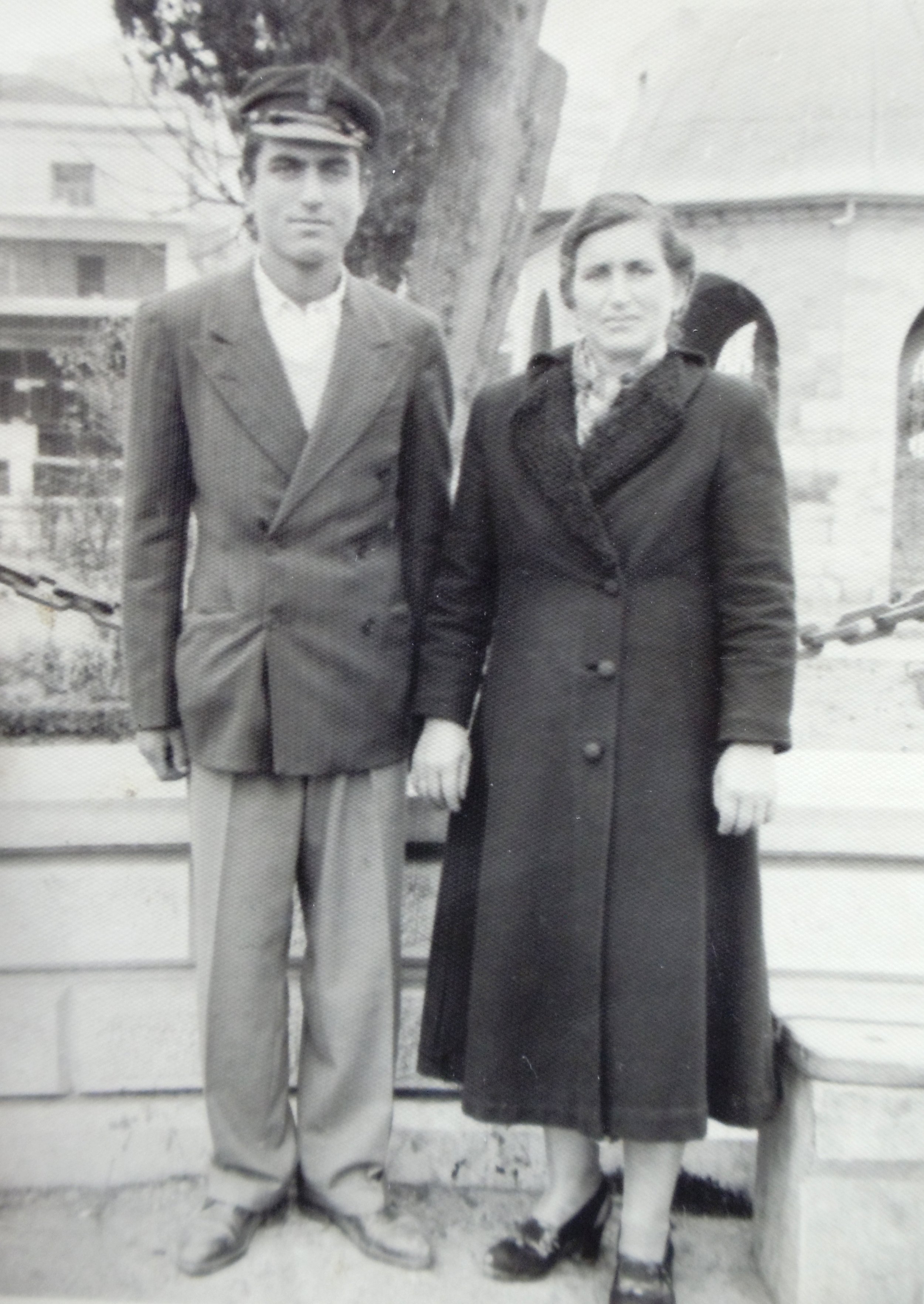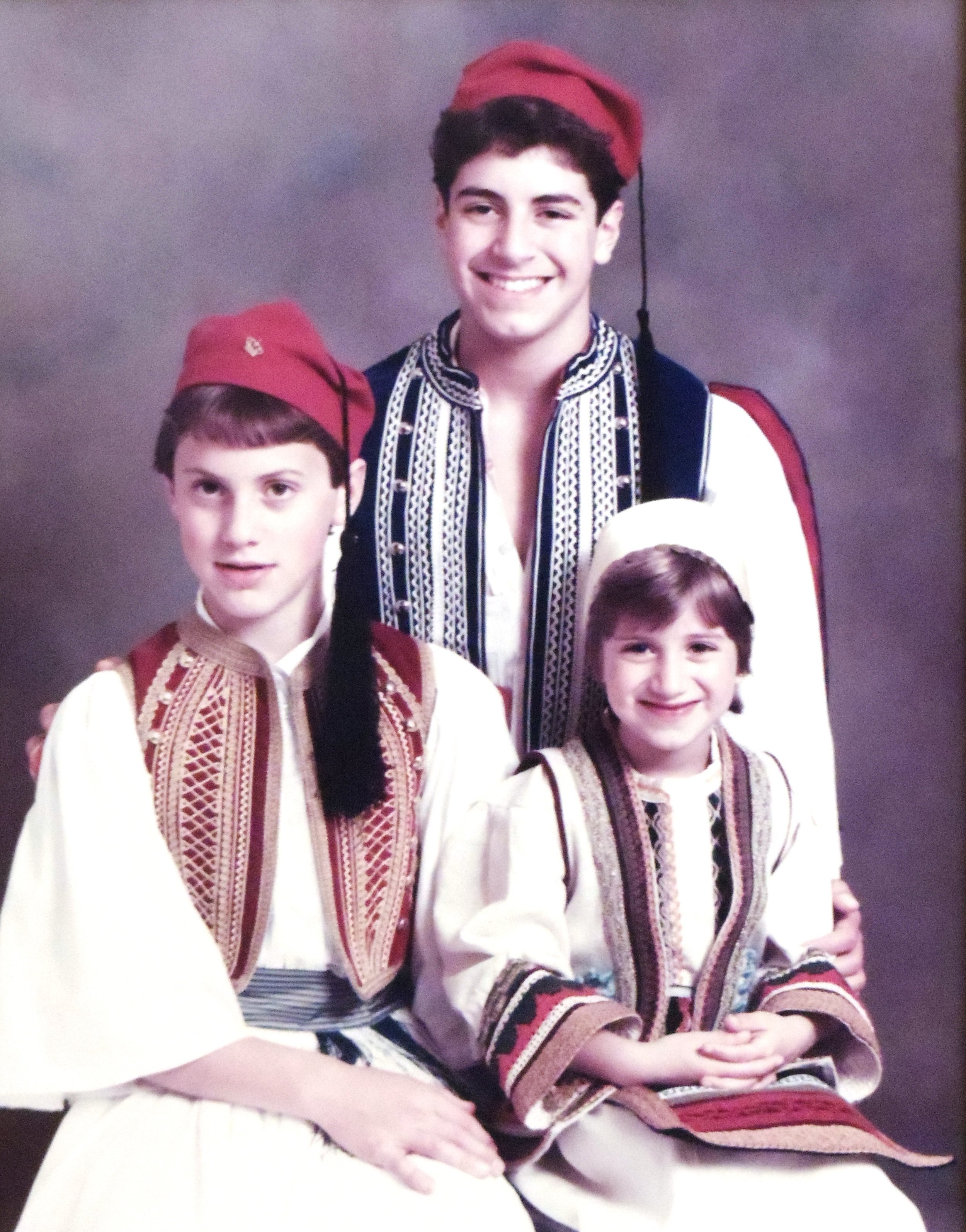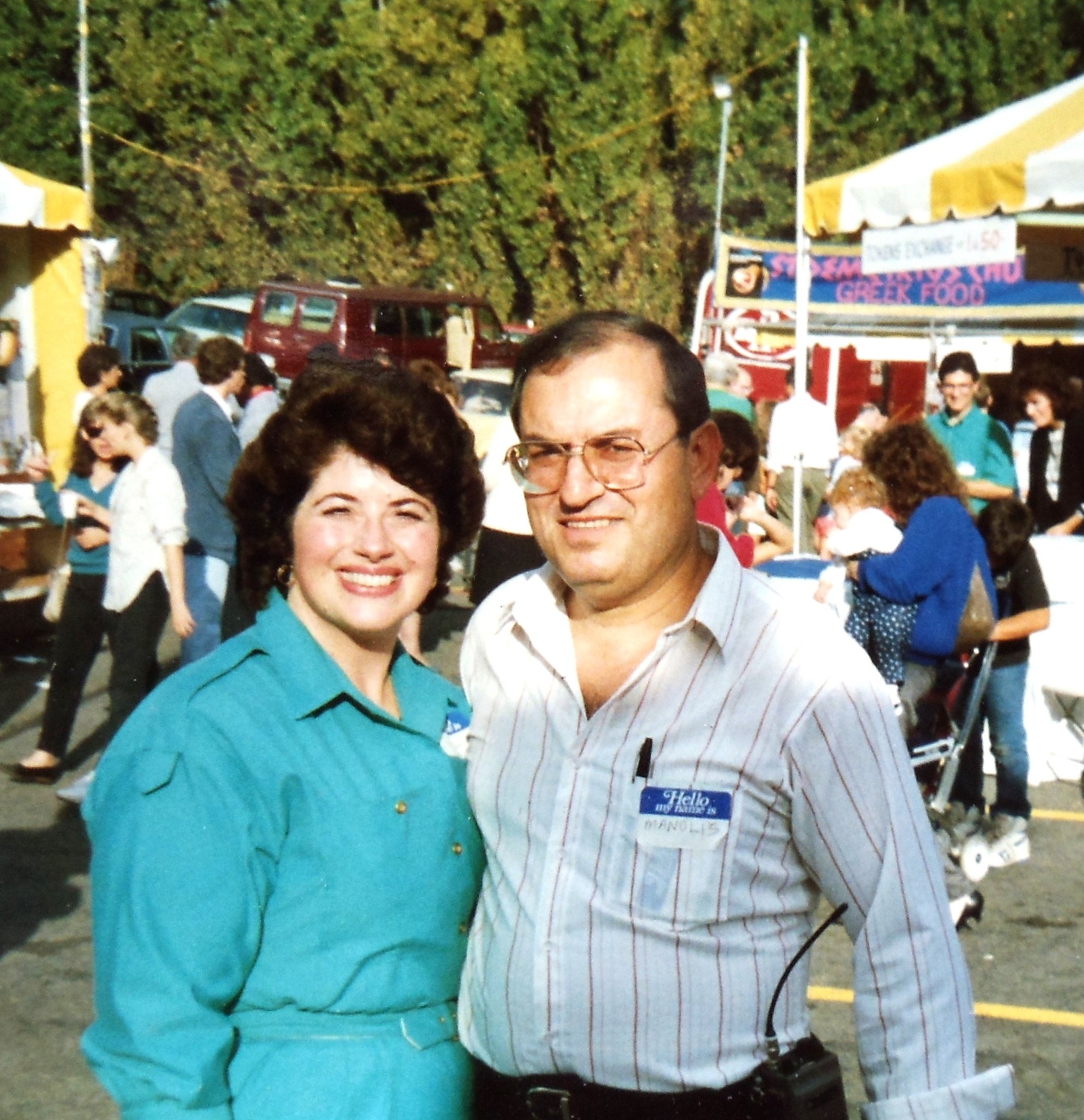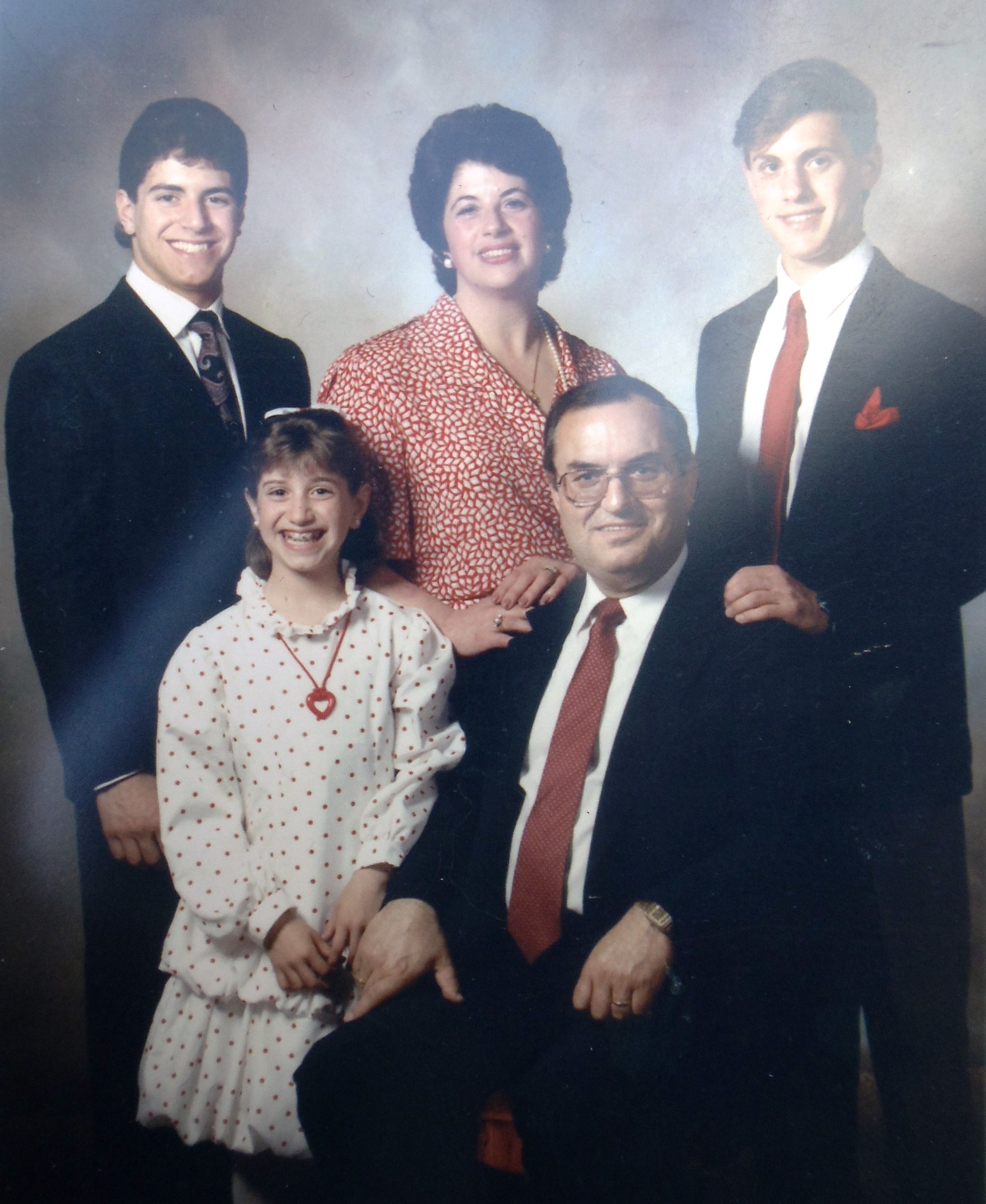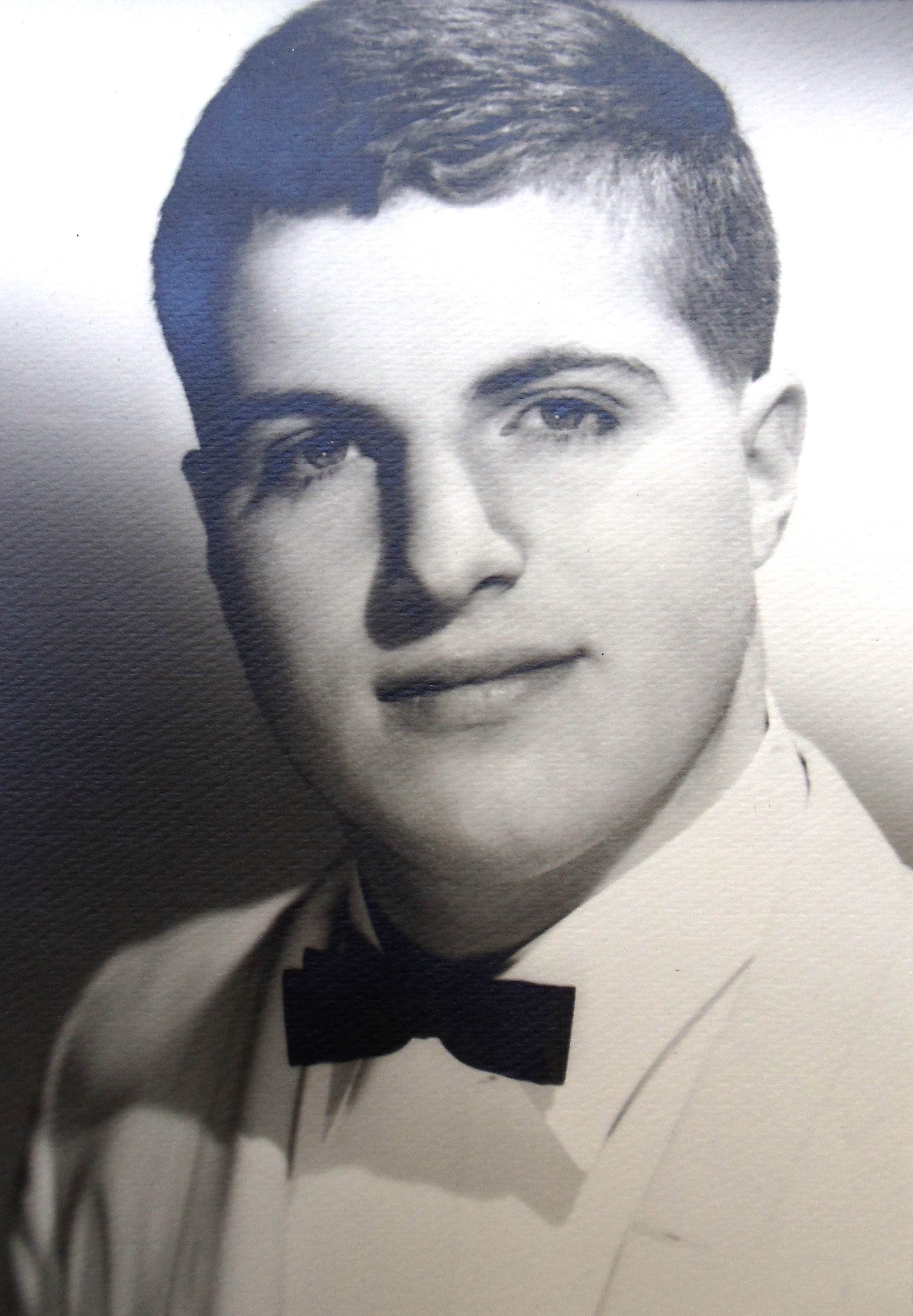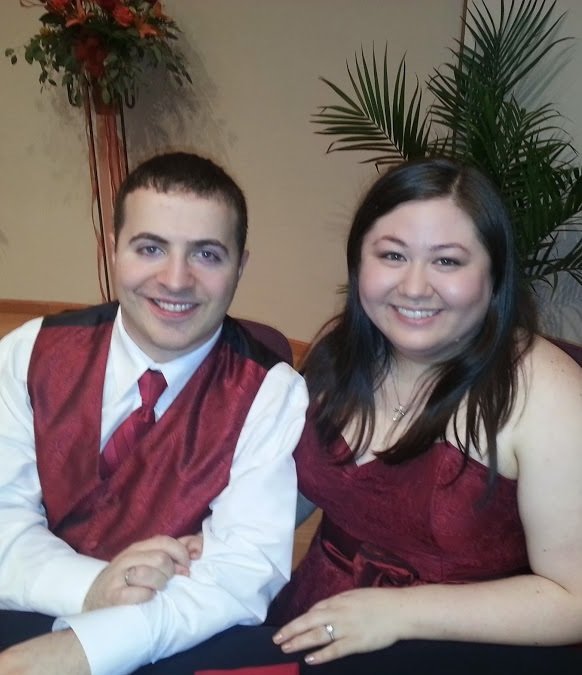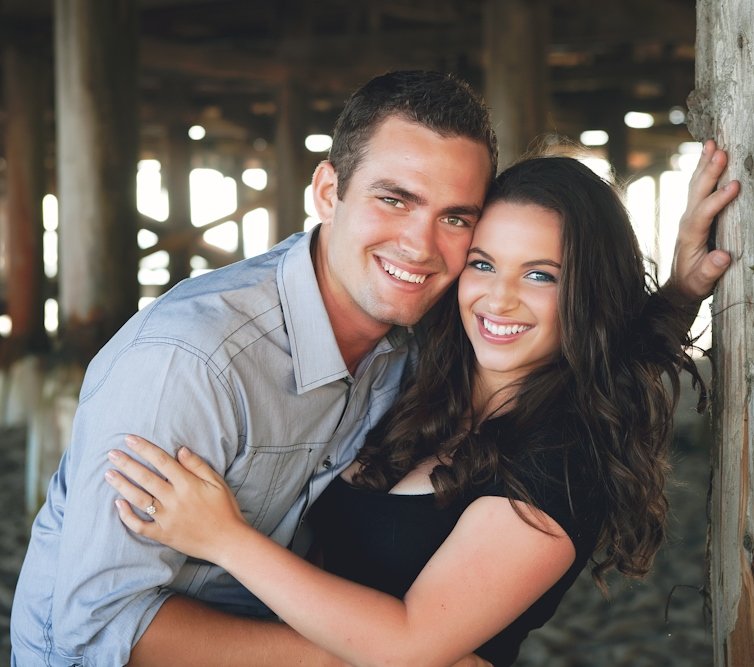Five Generations and Counting
The Derezes and Falangus families were among the first Greek settlers in the northwest United States. Five generations later their descendants have maintained their Greek culture. With only one exception, following the Greek tradition, all have been named after their grandparents.
DEREZES ANCESTORS
Socrates Derezes was born on January 15, 1875. He was from the town of Thalami (formerly Koutifari) on the Mani peninsula in the Greek Peloponnese. His first wife, Helen, remained in Greece with their only child, Stelliani, when Socrates first came to America. After Helen died Socrates returned to Greece in 1919 and married Fotene Meleas on September 13, 1920 in Trahila (Trakhila), Greece. Fotene was born on March 26, 1898 (the family also has information indicating September 21, 1896) and was much younger than her husband. In fact, she was a friend of his daughter Stelliani. Stelliani, Fotene and her brother Spiro Meleas boarded the ship SS CALABRIA in Patras, Greece, to sail to America, arriving in New York on December 1, 1920. Stelliani stayed in New York, married and visited her father in Seattle, Washington, only once. Spiro Meleas lived with his sister Fotene and her family in Seattle and never married.
During the 1920s Socrates owned a kafenion (Greek coffee shop) near Third and Yesler in Seattle which was a gathering place for Greeks, especially those from the Mani region. He also leased and operated the Empress Hotel located at First and Seneca and the Frye Hotel at Third and Yesler. Around 1930 Socrates and his koumbaro (best man), Nick Matthews, opened the New Empress Hotel at First and Yesler. During Socrates’ ownership of the hotels many newly-immigrated Greeks as well as many others in need of shelter, especially during the Depression, were given free lodging until they could become established. Socrates, like many others during the prohibition era, was a bootlegger. Judges supplied him with liquor which he sold to his customers. The Seattle police were “in on the take” but one day federal officers raided the kafenion and Nick Matthews took the blame for his koumbaro, claiming Socrates was a fine family man. Matthews spent one year in prison and after that was highly revered by the family.
Socrates and Fotene Derezes raised five children in Seattle: Mary (Rouvelas), born October 1, 1921; George, born August 18, 1924; Helen (Falangus), born April 14, 1926; Sophia (Dyment), born July 31, 1927; James born February 17, 1930. The Derezes children were raised in a strict household where the children always did what they were told. Socrates wanted his children to have an education and Fotene wanted them to make money, an issue between the parents. The family home was at 407 Sixth Avenue. The Derezes family became very good friends with the Tolias and Kouldukis families who lived across the street. Christto Tolias claims he passed his classes in school only because he copied off of Helen’s papers. The Derezes home along with those of Tolias and Kouldukis were demolished for the Interstate 5 freeway in the late 1950s.
Socrates died on January 8, 1947 at age 73 and Fotene on April 9, 1982 at age 84. Both are buried in Seattle’s historic Lake View Cemetery near other Derezes family members.
FALANGUS ANCESTORS
As early as the mid-1800s, a Falangus ancestor from Andros, Greece, an island in the Cyclades archipelago, sailed around South America and into the Columbia River, settling in what was the fishing town of Clifton, near Astoria, Oregon. It was the “wild west" and he was hired as a bouncer in a bordello. Others from Andros followed and worked as fishermen or in the canneries. There have been many spellings of the family name. The original spelling was Falangos. It has also been spelled Falangus or Falangas.
Mihali (Michael) Falangas was born in Andros and married Anna Diabetides. They came to Clifton to live where Mihali was a fisherman. Five children were born to the couple. The oldest, Moscha, drowned in the Columbia River. The second child, Yiannouli (a sea Captain) was followed by Marigoula and Athanasios (Athan). Two years later another girl was born and they also named her Moscha. Anna, in fear of losing another child named Moscha to the river, left Clinton in 1912 and returned to Greece with her husband and children, settling in Andros. Mihali returned to Clifton to fish and sent money to Greece to support his family. Every two or three years he traveled by train to New York when he knew a ship owned by relatives would be docked there. He then sailed to Greece as a first class passenger to visit his family.
Athanasios was born on June 16, 1908. When he was 13 years old he boarded his uncle's ship and began a career on the high seas. On one occasion when his ship docked in Argentina, he fell, injured his hand and sustained major internal injuries. Speaking only Greek, he quickly learned some Spanish while being treated in a Catholic hospital. Later he learned Russian and English. He attended the Naval Academy in Athens and earned the highest honors ever given to any graduate at that time. His degree earned him the right to "sail any ship on any water" — his exact words. He originally navigated with tools and the stars but as use of radar increased he returned to school to learn this new way to navigate.
At 35 years of age and handsome in his Captain's uniform, Athanasios was on leave visiting relatives in Portland, Oregon. He came to Seattle at the invitation of Socrates Derezes and met his daughter, Helen. She was unaware of the impending matchmaking until her mother, Fotene, called her daughter to come in the house to meet her fiancé, the handsome Captain. Athanasios was 18 years older than Helen and she was embarrassed to introduce him to her schoolmates so she would cross the street to avoid them. Helen and Athan were married March 25, 1944 at Seattle’s Saint Demetrios Greek Orthodox Church and had three children, Anna (January 30, 1945), Moscha “Peggy” (January 19, 1946) and Michael (March 28, 1947). After World War II ended, Athan brought his mother Anna and two sisters, Marigoula and Moscha, to Seattle. But by then they were strangers to their father so Athan bought them a home in West Seattle to live with their husbands, John Pantages (Marigoula) and Panagioti Alexander (Moscha). Their mother, Anna, also lived in this house.
American born, both Athan and Helen were bilingual but spoke only Greek at home. Part of the reason was because both of their fathers, Socrates Derezes and Mihali Falangas, lived with them. When their first child, Anna, began school she could only speak Greek and the school principal came to their home and told the parents to speak English so their children could succeed in school. Athanasios was also known as Athan Tom Falangus and was called Tom for many years until Peggy's second son was born. She named the son Athan after her father. From that time on grandfather Athan insisted on being called Athan instead of Tom.
Athan and Helen were married for 30 years until her untimely death of a stroke on September 21, 1974. Athan continued to sail on merchant ships well into his 70s and served in three wars: World War II, the Korean War, and the Vietnam War. He was unable to attend his daughter Peggy's wedding in 1967 as his ship could not be released from the Vietnam War Zone.
ANNA
Athan was away from his new bride, Helen, during her pregnancy with their oldest child, Anna Marie. He arrived from fighting in World War II the day before she was born on January 30, 1945. She was named after her yiayia (grandmother) Anna and Marie after her great aunt Mary. While Helen was overjoyed to have her husband return just in time, Athan was shocked to see his slender bride a full nine months pregnant. Given the nonexistent sexual education at that time, as well as the taboo of discussing sex, Helen was terrified of entering the hospital when she went into labor, because she did not know how her baby was going to get out of her body. Consequently, Helen and Athan kept walking around the block of the hospital until labor pains forced Helen to agree to be admitted. Four hours later they were parents.
Anna, along with her sister, Peggy, and her brother, Michael, attended Whittier grade school, located in the Scandinavian area of Seattle known as Ballard. Their mother was active in the PTA (Parent-Teacher Association), was the Den Mother for Mike's Boy Scout Cub troop, and was the Girl Scout Brownie leader for Anna's and Peggy's troop. When a black family moved into the Ballard school area and the parents attempted to enroll their daughter in the local Brownie troop, the young girl was refused admittance, because the local troop leader did not want a black child in her home, which was where the Brownie meetings were held. A meeting was held of all the local Brownie leaders, and Helen was the only leader who volunteered to have the girl join her troop. Anna remembers that her mother was so casual about introducing the new girl to her troop that all of the other little girls and their parents readily accepted her as well. It was not until the civil rights conflicts in the 1960s, that Anna appreciated just how progressive her mother had been.
After graduating from Queen Anne High School in 1963, Anna pledged Alpha Xi Delta Sorority, and entered the University of Washington (UW). During that fall, Anna attended a church dance where Paul George Dremousis, also a UW student, asked her to dance. Paul had emigrated from Greece in 1952, had served in the U.S. Army and was an American citizen. Three months later, after he completed his Bachelor of Arts degree in political science, Paul and Anna became engaged. They were married on July 18, 1964, in St. Demetrios Greek Orthodox Church in Seattle. After marriage, Paul remained enrolled at the UW, studying for a graduate degree in political science, while Anna quit school, and went to work. Years later when Anna's children questioned her as to why their father did not quit school instead, and allow her to complete her education, she replied, "It would never have occurred to me or any other woman at that time. Wives quit school and went to work. Husbands finished their degrees in order to eventually support their families better.”
After graduate school, Paul was employed as a Washington State parole and probation officer for five years. Their first child, Evangelia “Litsa” Helen was born on February 13, 1967, and her brother, George Athan, was born on August 31, 1968. When their children were young, the Dremousis family moved across the street from Anna's sister, Peggy, her husband, Emmanuel Tramountanas, and their three children. Next door to the Dremousis house was another Greek family, Olga and Gus Angelos and their four sons. Consequently, the five first cousins grew up to be like brothers and sisters. Also, it was easy for their parents to instill them with pride in their Greek heritage with nine Greek-American children growing up in close proximity.
Anna and Paul loved being parents and they were active in all of their childrens’ activities. Anna was room mother for both children all through elementary school, and Litsa's Brownie and Girl Scout troop leader. Both were Sunday school teachers, and Paul was George's soccer coach. By this time, Paul was employed as Supervisor of the Sentencing Unit for the King County Prosecutor's office.
When Anna was 32 years old she realized her children did not need her constant presence and that she could finish her college education. She attended North Seattle Community College (now North Seattle College) part-time for two years, and then graduated from the UW in 1982. Her degree was in English with honors in Creative Writing. In 1985, Anna graduated from University of Puget Sound (UPS) Law School in Tacoma, Washington, which meant driving eighty miles round trip each school day for three years. After her graduation ceremony, Anna went to kiss her father, but he pushed her away and said, "You now have more education than Michael, Paul, and Manoli. It is not right but there it is and we will have to learn to live with it." He then reached over to hug and kiss his daughter and would later brag to all he met that Anna was a lawyer. At 41 years old and, after attending school for seven years, Anna was sworn in as a lawyer and she began working for the King County Prosecuting Attorney as a trial lawyer. Anna truly enjoyed trial work, so much so that after only eight months on the criminal trial team, she earned the honor for that year of having the second highest number of days in trial--an unheard of feat for a first year deputy. In fact, her supervisors were stunned, because they confessed that they had never been in trial that much in their entire careers. Paul retired from the Prosecutor's office in 1994 after twenty-three years of employment, while Anna retired in 1996 because of health problems she sustained from an automobile accident.
Anna and Paul celebrated their 50th wedding anniversary in 2014 and continue to enjoy family activities with their children and their grandson, Nixon, who is the delight of their golden years.
PEGGY
Peggy was born on January 19, 1946 and, as the second daughter, she should have been named Fotene, or Frances, after her maternal yiayia (grandmother). However, as her mother gave birth to two girls within one year, Yiayia Fotene felt it to be a big disgrace and refused to have the child named after her. So Peggy's mother named her Moscha Panagiota after her paternal aunt who did not have children but she called her "Peggy" because that was her favorite childhood doll. When Peggy married she legally changed her name to Moscha Peggy. Interestingly, because Fotene was from Mani, Greece, where male children were favored, only boys were considered pethia or children. If one was asked how many children they had, they could reply according to the number of pethia and say the rest were just girls.
Peggy and Anna were born 11 ½ months apart and their younger brother Michael was fourteen months younger than Peggy. Given the closeness of their ages, they were more like triplets. Like her older sister, Peggy had the same dolls, was active in Girl Scouts, wore the same clothes and attended the same schools beginning with Whittier Elementary and James Monroe Junior High. At the time they lived in what was a suburb of Seattle’s on NW 80th Street. She went to Greek School at Hamilton Junior High. The family lived in a nice brick home and her mother would attend Parent-Teacher Association (PTA) meetings wearing a hat and gloves. When the family bought property on Fifth Avenue West in the Queen Anne neighborhood, Peggy “sailed” through school with proficiency in business, mathematics and typing. With more than enough credits to graduate, she was asked to leave school each day at noon to give more time for other students. After graduating from Queen Anne High School in 1964, she went to the UW and joined the same sorority as her sister Anna. Peggy was not allowed to wear lipstick, high heels or to dress up before Anna got married, lest she be perceived as the older sister. Once Anna married Paul Dremousis, Peggy came into her own. However, her father remained concerned when, at the age of 21, she was not married.
Peggy had little time for college studies as she was helping her family by managing their properties. She took business classes, public speaking and loved her English courses. She met Manuel Tramountanas when she was 17 and he was in Anna and Paul’s wedding. It was there that the courtship began. Peggy worked at Eubanks Financial Services in the Dexter Horton Building as a runner delivering stocks, then sorting and selling stocks in the bond market. She found a better job in 1967 with Foster and Marshall as private secretary for Mike Foster with three typists working for her. She and Manuel were married on August 20, 1967.
MANUEL
Manuel Tramountanas was born on June 5, 1938, in Nea Paremos, near Kavala in northeastern Greece. The family name was formerly Karonias but was changed to Tramountanas which means north wind as his grandfather was a fisherman. His parents were refugees from eastern Thrace, Greece, during the exchange of Turkish Muslims and Greek Christians in 1923. His father George was an only child and a “jack of all trades” -- a fisherman, blacksmith, restaurateur and informal veterinarian. His mother, Anna, was a farm girl with several siblings. Her uncles had left eastern Thrace in about 1906 and traveled through New York to Tacoma, Washington, where Manuel had two uncles and two aunts. As farmers were needed and high school was expensive, he was able to stay with his relatives in Kavala and was fortunate to have finished high school in Greece where others barely finished elementary school. His father threatened that if he flunked one year he would have to return to farming.
In 1954 Manuel’s uncle, George Phill, traveled to Greece to visit his relatives. George Phill had brought another nephew, Phillip Derdevanis, to study in America and Manuel, with encouragement from his family, asked if he could do the same. With poli efharistos (many thanks) he accepted the opportunity and found himself in Tacoma. Speaking no English he first attended Stadium High School to take a few courses and found his knowledge of mathematics to be superior to that of his teacher. Classes at Lincoln High followed where he learned English and then entered the University of Puget Sound (UPS). While other students were using slide rules, Manuel could solve problems without one. He wanted to be independent but not work in the restaurant industry as did many Greeks at the time. He had seen too much food wasted for lack of refrigeration or electricity in Greece. However, he did work briefly at The Cove restaurant in Seattle (just to make some money), as a longshoreman in Tacoma and in a cannery in Walla Walla, Washington, during the summers.
In 1958 Manuel attended Seattle Pacific University (SPU) for one year in pre-engineering and earned his bachelor’s degree in electrical engineering from the UW in 1962. He had already begun working at the Boeing Company when he graduated. The job was testing electrical systems in airplanes when computers were first being used. He soon became the youngest manager at Boeing, was promoted to lead manager, spent 33 years there and retired as chief engineer of computer management systems in 1995. His was an accelerated retirement and he is pleased to have been able to succeed with the Boeing Company and provide his children with their college educations. In Manuel’s words, “I couldn’t do any better than that.”
Peggy and Manuel have three children: George, born December 31, 1970; Athanasios (Athan), born August 10, 1972; Anna Eleni (Ellie), born September 9, 1978. They have seven grandchildren.
MICHAEL
Michael Janouli (John) Falangus was born in Seattle on March 28, 1947. When he married at age 35, his father asked why it took him so long.
As he was born after his grandfathers died, Mike had less Greek influence at home and speaks Greek hesitantly. He does know a few off-color words however. Mike attended Whittier Elementary and graduated from Queen Anne High in 1965. After one year at Central Washington University, in Ellensburg, Washington, he completed his bachelor’s degree in anthropology at the UW in 1969 and a master’s degree in anthropology from the University of Nevada in Reno in 1974. At the time jobs in his field were difficult to find so he took the opportunity to train as a medical technician and worked nights at Swedish Hospital in Seattle as a computer operator in the laboratory for one and a half years. In 1979, with the help of a reference from his brother-in-law Manuel, he spent the next eleven years working at the Boeing Company as a programmer and systems analyst.
In 1981 Mike attended a Greek dance in Seattle on a whim where he met Elaine Kansas, a third-generation Greek-American. She had recently moved to Seattle from New York, to pursue a career in nursing. Elaine’s relatives in Seattle are Maria and Ted Kaltsounis. (see CLIMB EVERY MOUNTAIN) They married on July 25, 1982 at St. Sophia Greek Orthodox Church in Albany, New York. Of the Falangus men, only Mike’s father, Athanasios, had children so the family name now rests with Mike’s son Athan, born in 1986. Mike’s other child, born in 1989, is Helena Theresa, named after her two grandmothers.
In 1990 Mike left Boeing and owned and operated West Coast Video in the Juanita area northeast of Seattle for three years. He then entered the financial planning field at Wadell & Reed Financial, Inc. After that, he returned to information technology at SAFECO Insurance, Boeing and the University of Washington, finally back to financial planning where he retired from Prudential Insurance in 2011. Following his father’s lifetime interest in ancient Greece, he presently teaches ancient Greek philosophy and mythology for seniors at the Lifetime Learning Center in Seattle. He also teaches at Bellevue College in a program titled Telos, not as usually translated to mean “the end” but rather “the goal” as used by Aristotle.
Michael and Elaine enjoy the arts and the outdoors. When Michael was younger he used to jog marathons and now enjoys less strenuous exercise. Elaine is a graduate of Hartwick College in New York. She is a registered nurse and now owns her own business, “Pottery Plus,” where she teaches ceramics classes in local school districts.
LOOKING BACK
Anna, Paul, Peggy, Manuel, Mike and Elaine all value their Greek heritage as it gives them an identity and a sense of history. When the Falangus children were younger, they felt very comfortable with their Greek friends and in the Orthodox Church community, but with different food, a different religion and a different language they felt strange in a neighborhood with no other Greek families.
When thinking about his expectations coming to America as a young man, Manuel says it was more than he expected. Fortunately, he benefited from a good education in Greece. Unlike the class system that he experienced in Greece, he learned that one can do anything one wants in the United States. In 1962 Manuel was able to bring his brother George to Seattle. Manuel has been able to invest in real estate, secure the “American dream” and see his children succeed.
Peggy remembers that her yiayia Fotene could not speak English but would take the bus to Majestic Furniture owned by Sam Doces and buy furniture with a handshake because she could not write her name. Payment came later from her sons, George and James Derezes. She would also take her grandchildren (the three Falangus children, Manny and Pauline Rouvelas [see EDUCATION, EDUCATION, THINK FIRST] and cousin Jim Kalafates Dyment) to the movies where Manny did the talking. Then she would open the salami and cheese for snacks. No popcorn for her Greek grandchildren! She was a strong woman who loved her large family and Peggy remembers her making tsourekia (sweet bread) and kourambiethes (butter cookies covered in powdered sugar) at Easter and mixing everything by hand. Her family loved her Easter mageritsa (soup made from the organ meats of lamb). She taught her granddaughters the basics of crocheting and bought them red coats at Easter time.
Peggy and Manuel have worked hard at sharing their Greek heritage with their children. Greek dancing, food and holiday celebrations are very important in the Tramountanas family. Both still speak and write the language and while they have not placed “ethnic boundaries” on their children, their children have embraced the heritage. George, Athan and Ellie have kept active in activities through their Greek Orthodox Church community and all their children have Greek names. The family travels to Greece every two years and each of the family members has a condominium in Kavala.
While Mike has not remained as close to his Greek heritage and Greek Orthodox faith as his sisters, he has used his background and academic studies to share the Hellenic and Greek history with his students.
Peggy and Manuel have been recognized on several occasions for their tireless work at St. Demetrios Greek Orthodox Church in Seattle. Manuel was president of the parish council, helped begin the stewardship program, chaired the annual Greek festival several times and was board president of All Saints, the church camp program. Peggy describes herself as a “helicopter mom” overseeing the many activities of her children, both at church and at school. She was president of Philoptochos (women’s church auxiliary), helped found Camp Agape (a Kids ‘n’ Cancer mission of the church) and has been speaker, dance announcer and pastry chair at the Greek festivals.
The Derezes and Falangus legacies live on through five generations.
By John and Joann Nicon with Anna Dremousis and Peggy Tramountanas, March 2014
VIDEO SEGMENTS
Almost Like Triplets
All Children Should be Boys
Greeks are Different
Oldest Girls Marry First
Learning the Classics
PHOTOS
Mike Falangus, Peggy and Manuel Tramountanas, 2013
Derezes family (l-r) Fotene, George, Helen, Jim, Mary, Sophia, Socrates, 1930s
Family wedding, 1983
Fishermen in front of Falangus grocery, Clifton, Oregon, 1902
Grandfather Michael Ianoulis Falangus, early 1900s
Athanasios, Moscha, Marigoula and Anna Falangus, 1922
Athanasios’ Argentinian captain’s certificate, 1936
Athanasios’ Marine diploma, 1937
Helen and Athanasios wedding, 1944
Athanasios and Helen, 1947
Athanasios and Nick Matthews, 1987
Anna in high school, 1963
Family (l-r) Paul Dremousis, Anna Dremousis, Litsa Dremousis, Athanasios Falangus, Helen Falangus, Manuel Tramountanas, Peggy Tramountanas, Mike Falangus (kneeling) 1967
Dremousis 50th anniversary (l-r) Trent Hill, Litsa, Paul, Anna, George, Jennifer, Nixon, 2014
Peggy, Mike and Anna, circa 1950
Peggy and Anna, circa 1952
Anna, Peggy and Mike, circa 1982
Peggy in high school, 1964
Peggy and Manuel wedding, 1967
Manuel and his father George Tramountanas, circa 1940s and 1900s
Manuel and his mother Anna, 1955
Athan, George and Ellie, 1982
Peggy and Manuel at St. Demetrios Greek festival, 1980s
George, Ellie, Peggy, Manuel and Athan, mid 1980s
Mike in high school, 1965
Athan and Camille Falangus, 2013
Dan Duffy and Helena Falangus Duffy, 2013
Mike Falangus family (l-r) Athan and Camille Falangus, Helena and Dan Duffy, Michael and Elaine Falangus, 2013
Peggy and Manuel recognition, various dates
Tramountanas family in Nea Paremos, Greece (l-r) seated: Manuel, Xander Pedersen, Peggy, Angelia Pedersen; middle: John, Manoli A, Manoli P, Eleanor Tramountanas, Ellie Pedersen, Athan Pedersen: back row: Vicky Tsirigotis, Cindy, Athan, George, Dana Tramountanas, Chris Pedersen, Triantafillos Tramountanas, Diamonto Tramountanas, George Tramountanas, 2014
Photos 1 and 29 by John Nicon; 4 from Landmarks of our Past by Tom Doulis; all others from Falangus and Tramountanas family collections
SOURCES
Video interview by John and Joann Nicon, March 2014; family notes by Peggy Tramountanas and Anna Dremousis




